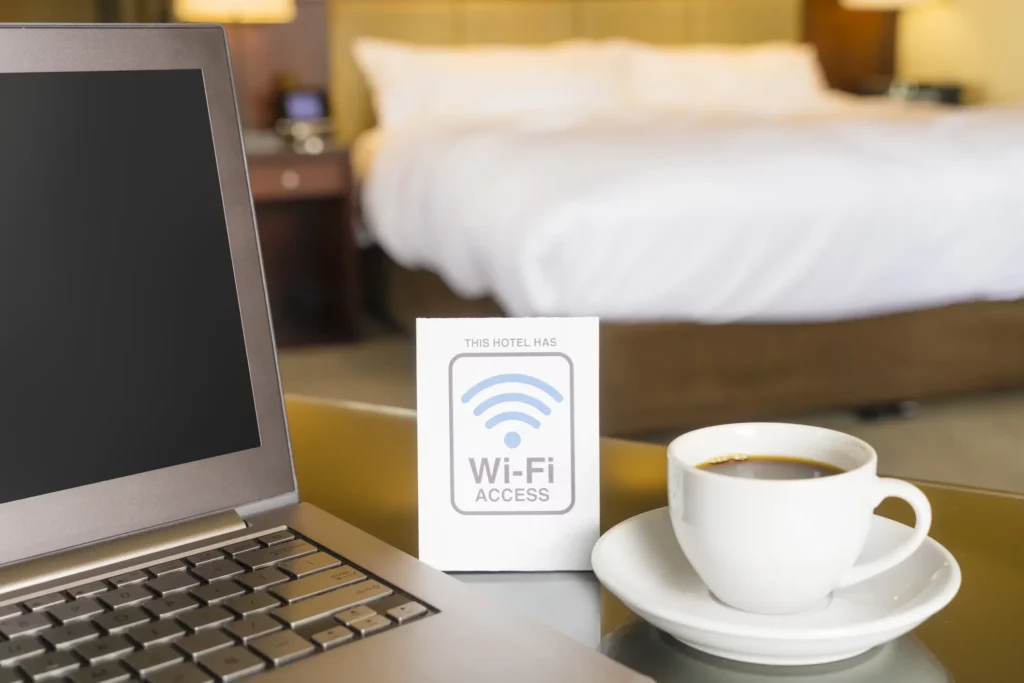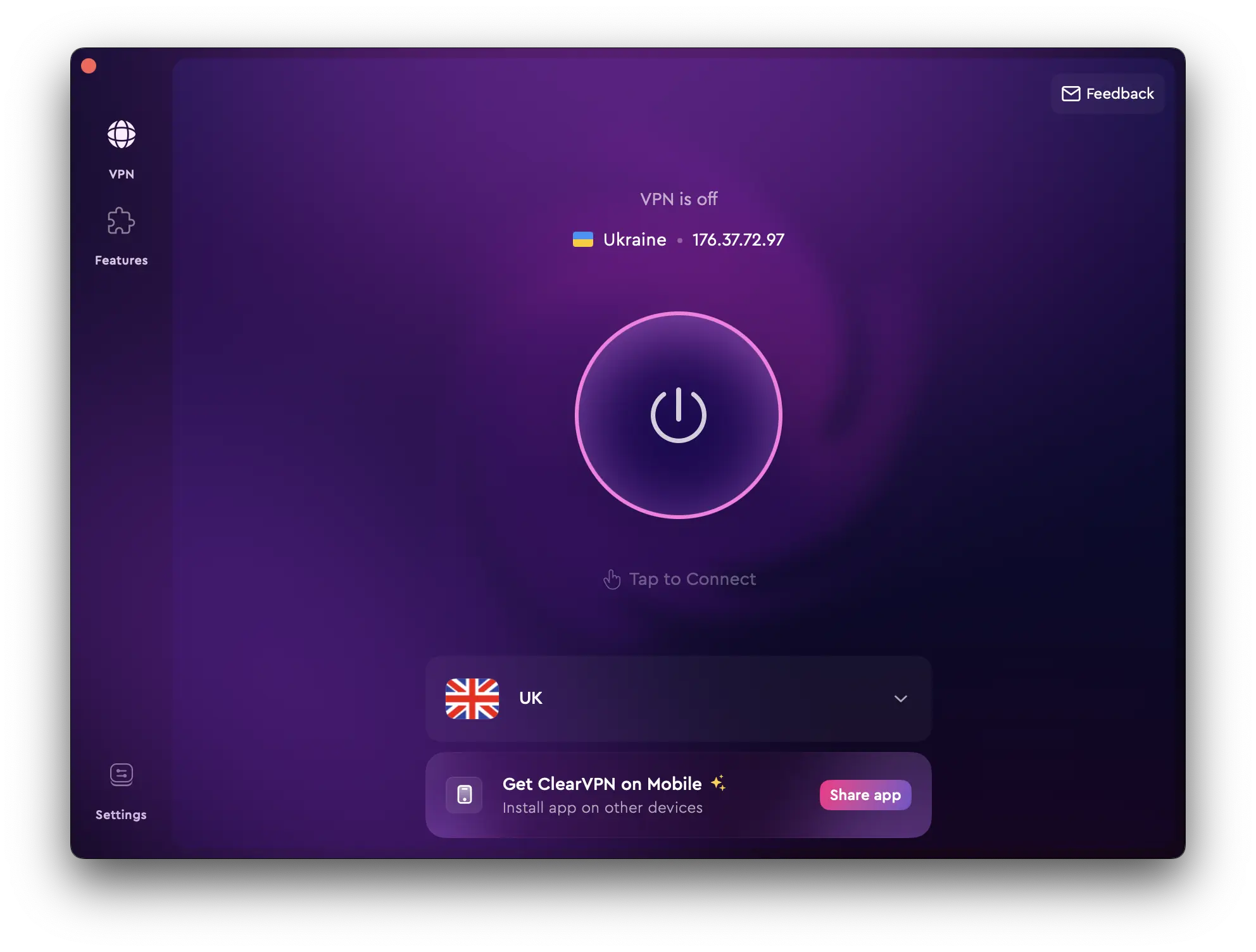In today’s interconnected world, having access to the internet while traveling is an absolute necessity, and hotel Wi-Fi has become a convenient solution for many globetrotters. However, not many people realize that the convenience comes with a significant caveat — hotel Wi-Fi security risks!
Whether you’re traveling for business or leisure, understanding these potential threats and knowing how to mitigate them is crucial for maintaining your digital safety.
Is it safe to use hotel Wi-Fi?
Jumping straight to the core of the question — no, hotel Wi-Fi is not entirely safe. Unlike your home network, hotels often have weak security protocols in place to protect their WiFi networks as well as their guests’ data.
Moreover, as hotels cater to a large number of people, it’s almost impossible for them to secure their Wi-Fi networks from malicious activities altogether. As a result, hackers have come to see hotel free Wi-Fi networks as easy targets for stealing sensitive information.
According to a report by Kaspersky, 48% of travelers use public Wi-Fi for online banking and other financial transactions, making them vulnerable to cyber-attacks. Moreover, a similar study reveals that roughly 4 in 10 people have fallen victim to cybercrime due to the use of unsecured public Wi-Fi networks.
What are the key security risks?
Now this brings us to the next crucial question: what are the risks associated with using hotel Wi-Fi? Here are some of the most common ones:
- Man-In-The-Middle Attacks: In this type of attack, the hacker intercepts the communication between you and the server by positioning themselves between your device and the hotel’s network. This allows them to view, modify, or steal any information you send or receive over the network.
- Malware and Viruses: Since hotel Wi-Fi networks are shared by numerous guests, it’s very easy for a virus-infected device to spread malware across the network. Once your device is infected with malware, hackers can gain access to your personal data and even control your device remotely.
- Rogue Hotspots: Hackers can set up fake hotspots that mimic legitimate hotel Wi-Fi networks in an attempt to trick unsuspecting guests into connecting to their malicious network. Once connected, the hacker can monitor all of your online activities and potentially steal your sensitive information.
How to stay safe on hotel Wi-Fi?
Now that you’re aware of the potential risks, does it mean that everyone should avoid using hotel Wi-Fi altogether? Not necessarily.
Despite the risks, hotel Wi-Fi can still be safe to use if you take the necessary precautions. Here are some tips to help you stay secure while using hotel Wi-Fi:
- Avoid Sensitive Activities: As tempting as it may be to check your bank account or make online purchases using hotel Wi-Fi, it’s best to avoid these activities. Instead, use your mobile data or wait until you have access to a secure network.
- Keep Software Updated: Make sure all of your devices’ software, including operating systems, antivirus programs, and apps, are updated with the latest security patches. This helps in preventing malware attacks.
- Beware of Rogue Hotspots: Always double-check with the hotel staff for the correct Wi-Fi network name and login information before connecting. Also, pay attention to any warning signs issued by your device about suspicious networks.
- Use HTTPS Websites: Whenever possible, use websites that have “https” in their URL instead of just “http”. This indicates that the website has an added layer of encryption for improved security.
- Enable Two-Factor Authentication: Adding an extra layer of security, such as two-factor authentication, can help protect your accounts even if your login information is compromised.
Ensuring hotel Wi-Fi security with a VPN
If you’re serious about your online security while using hotel Wi-Fi, investing in a good VPN service (Virtual Private Network) is your best bet.
A VPN protects you by creating a secure, encrypted tunnel between your device and the internet, making it almost impossible for hackers to intercept your data. This encryption (AES-256) makes it so that even if hackers manage to steal your data, it will be unreadable. Moreover, using a VPN for hotel Wi-Fi also hides your real IP address and location, providing an extra layer of anonymity and protecting you from targeted cyber-attacks.
You can think of it this way — a VPN acts as a shield between your device and the hotel Wi-Fi network, ensuring that your data remains safe even if the network itself is compromised. And the best part is that using a VPN these days has become extremely easy and requires no technical knowledge whatsoever.
To show you just how easy it is, here are the steps on how you can get up and running in minutes with ClearVPN — a reliable and user-friendly premium VPN app.
- Download and install the ClearVPN app on your device. You can do this directly from the ClearVPN website (if on PC or Mac), or through the mobile app store (Apple’s app store or Google Play Store) if you’re using a mobile device.
- Run the ClearVPN app and sign up for an account. Subscription prices start at $9.99 per month with a 3-day free trial.
- Assuming that you now have an account, you can log on to the ClearVPN service which should take you to the dashboard page. From there, all you have to do is tap the quick connect button (the large purple button on the center of the page), and you’re good to go.

That’s it! You are now securely connected to the Internet using ClearVPN, and can use hotel Wi-Fi without any worries. But remember, using hotel Wi-Fi safe is not about being paranoid, it’s just about being proactive and taking necessary precautions to protect your online privacy and security.
FAQs
Can you get hacked using hotel Wi-Fi?
Yes, you can get hacked using hotel WiFi if you do not take precautions. Public Wi-Fi networks are often unsecured, making it easier for hackers to intercept your data, inject malware, or set up fake hotspots.
Can hotels see what you are browsing?
Yes, hotels can potentially monitor and log your browsing activity on their WiFi networks. They can see which websites you visit, but they usually cannot see the actual content unless you visit unencrypted HTTP sites. Always use HTTPS sites and a VPN for added privacy.
Is it safe to use hotel Wi-Fi for Netflix?
Yes, it’s generally safe to use hotel WiFi for streaming Netflix. However, to protect your personal data and viewing habits, it’s advisable to use a VPN, which encrypts your connection and prevents potential eavesdropping or data theft.
Is it safe to use hotel Wi-Fi for online banking?
It’s not safe to use hotel WiFi for online banking. Public WiFi networks are vulnerable to hackers who can intercept your sensitive information. Instead, use your mobile data or a secure network, and always enable two-factor authentication for added security.
